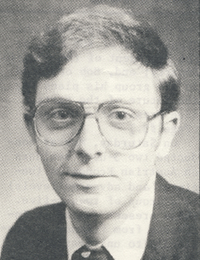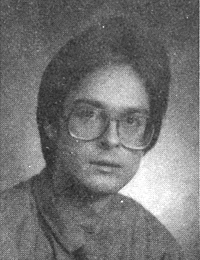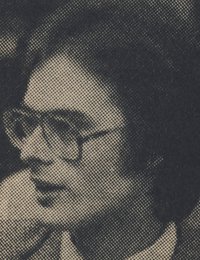 AUDIO – DESCRIPTION:
AUDIO – DESCRIPTION:
Years prior to the founding of Freedom Party of Ontario, Robert Metz calls into the Wayne McLean radio talk show to comment about the legalization of cannabis.
 AUDIO – DESCRIPTION:
AUDIO – DESCRIPTION:
Years prior to the founding of Freedom Party of Ontario, Robert Metz calls into the Wayne McLean radio talk show to comment about the legalization of cannabis.
 AUDIO – DESCRIPTION:
AUDIO – DESCRIPTION:
Years prior to the founding of Freedom Party of Ontario, Robert Metz calls into the Wayne McLean radio talk show (the guest of which was David Warren) to comment about freedom and the constitution, especially in regard to the absence of property rights in the then-coming Canadian Charter of Rights and Freedoms.
Continue reading »
 AUDIO – DESCRIPTION:
AUDIO – DESCRIPTION:
Years prior to the founding of Freedom Party of Ontario, Robert Metz calls into the Wayne McLean radio talk show to comment about gambling, and the voluntary nature of gambling proceeds (as opposed to taxes).
Continue reading »
 AUDIO – DESCRIPTION:
AUDIO – DESCRIPTION:
Years prior to the founding of Freedom Party of Ontario, Marc Emery calls into the Wayne McLean radio talk show to comment about sex offenders.
Continue reading »
 AUDIO – DESCRIPTION:
AUDIO – DESCRIPTION:
Years prior to the founding of Freedom Party of Ontario, Marc Emery calls into the Wayne McLean radio talk show to comment about religion. He asserts that reason contradicts religion. He focuses on the method by which a person distinguishes true from false (i.e., epistemology).
Continue reading »
 AUDIO – DESCRIPTION:
AUDIO – DESCRIPTION:
Years prior to the founding of Freedom Party of Ontario, Robert Metz calls into the Wayne McLean radio talk show to comment about the patriation of Canada’s constitution, and the socialist orientation of Canada’s then-Prime Minister, Pierre Elliott Trudeau.
Continue reading »
 AUDIO – DESCRIPTION:
AUDIO – DESCRIPTION:
Years prior to the founding of Freedom Party of Ontario, Robert Metz was a weekly contributor a program called Access 96, broadcasted on CFPL FM 96 in London, Ontario. In this broadcast, Robert speaks against a $6M federal ad campaign to promote national unity. Metz speaks of individual rights of life, liberty, and property versus collective “rights”. Metz states that the purpose of a constitution is to protect citizens from abuse of power by the government, and he expresses concern for the future should the proposed constitutional amendments be made..
Continue reading »
 AUDIO – DESCRIPTION:
AUDIO – DESCRIPTION:
A radio editorial by Georgie Banks, who gives her opinions about Marc Emery’s new weekly newspaper, The London Tribune. She notes that the paper, on its first day of publication, broke a new story about a scandal at the London Art Gallery.
 AUDIO – DESCRIPTION:
AUDIO – DESCRIPTION:
A “close-up” profile by radio CJBK AM 980. Marc Emery is interviewed about his London Tribune weekly newspaper, which is launching that day. The paper’s first issue is free. Emery opines that the daily newspaper is a thing of the past, given the ability of radio and TV to provide up-to-the-minute news.
 AUDIO – DESCRIPTION:
AUDIO – DESCRIPTION:
Just days before the launch of a new London weekly newspaper spearheaded by Marc Emery (The London Tribune), this news report interviews the editor of the London Free Press, William C. Heine, who says the evidence suggests that it is not economically viable to run more than one daily newspaper in a place like London that has a population of less than 1,000,000 people. Heine is asked what happens when a two-paper town to a one paper town; he points out that almost all newspapers are now owned by only two companies, Thompson and Southem. Marc Emery is interviewed and speaks out against government subsidizing failing newspapers. Heine says that new technology, such as the word processor, is allowing newcomers like Emery to publish a competitive weekly magazine at an affordable cost. Emery adds that a daily newspaper is becoming obsolete because of electronic media like radio and TV that can deliver information instantly. He adds that The London Tribune will offer something different from the London Free Press: it will focus primarily on local news. To promote the newspaper, the company is advertising on radio, on buses etc..